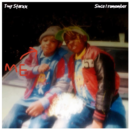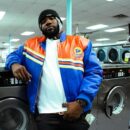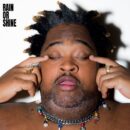For years I have covered some of the most eccentric, egotistic, and entertaining figures in hip hop music, but it isn’t all that represents me. Since I was 18 years old and an old friend of mine from hockey asked me what I was doing on a Friday Evening in Green Bay, WI, there is another musical group that took my heart. Gaelic Storm is the most known unknowns in the musical world and Upcoming hip hop gave me the opportunity to set down with two talented individuals from the band.
Isaac Ford: All right. First, off the bat, my name is Isaac Ford. I'm with Upcoming Hip Hop. If you guys want to state who you are and who you're with, and what you guys represent?
Patrick Murphy: Patrick Murphy from Cork City, Ireland. That's it.
Steve Twigger: Steve Twigger, and the band's Gaelic Storm. I'm from England. Coventry, around the middle of England.
Isaac Ford: Awesome. Since we're a Hip Hop platform here, I wanted to go back to your guys' early days, give them more of introduction to you guys because a lot of our readers might not be as knowledgeable as I am with you guys. Going back to when you guys really struck it big with Titanic and playing in that movie, have you guys been in any other scores since then? What was that like? Did you guys get an urge to do more movies?
Patrick Murphy: We did a couple of T.V. shows. We did a song for a T.V. cartoon movie. Most of the music then ended up original songs and trying to create our own identity as opposed to just singing traditional songs.
Steve Twigger: Titanic obviously was great, and it was the most perfect experience you could possibly have, but I don't think anybody came back thinking this was our career. We were a pub band back then. We were pretty much still all had day jobs. We took it
easily , we just kept playing the pub and then the phone was ringing off the hook. We decided to give it a shot, and here we are.
The energy you see in Titanic [you can see them dancing on tables below deck] is just one of the things that makes a Gaelic show worth seeing. The pub band style of this band is not just entertaining but authentic. Folk bands are often about telling a story. That’s something they have in common with hip hop music, and what better place to tell a story
Isaac Ford: Today, we went on that tour of Point Brewery. They are well known for all the beers they have there, but they also do CiderBoys. Can you guys want to talk a little bit about your partnership with CiderBoys and what goes into that? Also along with that, have you guys ever wanted to go into brewing your own beer or going down that alley at all?
Patrick Murphy: Brewing our own beer for Gaelic Storm or just … Yeah.
Isaac Ford: Yeah. Either for yourselves or as Gaelic Storm.
Patrick Murphy: I've actually got a still somewhere.
Steve Twigger: It's
in my house.
Patrick Murphy: Yeah. I've distilled some
rum, and some whiskey. Got really into that for a while, and then just circumstance, I just couldn't follow through. Not really been into the beer brewing. I'm more interested inthe beer drinking. Let somebody else do the hard work, we'll just do the easy work.
Steve Twigger: Yeah. After the
tour today as well, just seeing theinners of the belly of the beast. Going through the bottles and the cardboard, and the UPC codes and the boxes, and then at the end of it, Joe just goes over and just takes one beer, and you go, "There you go. There's your beer." Then, what do you do with the beer bottle? You're like, "Oh, that was great." Yeah.
Patrick Murphy: Yeah. It was funny when we were talking about that. We had just started talking about all the craziness that goes into it, and then we look over here and they got this machine that's the size of a bus. "Oh, what does that do?" "It folds the cardboard and glues it."
Steve Twigger: Yeah. That's all it does. It's the size of the house.

Stevens Point is one of the hidden gem towns of middle Wisconsin and within the town itself there are many spots that anyone stopping through would fall-in-love with, one of these being Point Brewery. As nice as it is to talk beer with a couple of musicians I’ve looked up to, and as much as I love beer, it goes really nice with a side of music. The trouble with most good music is the same problem with most good beers, the commercialized industry swats at small pubs and authentic artists.
Isaac Ford: I wanted to get into your music because you guys have a pretty unique sound here for the states especially. In a time when Hip Hop is the most listened to music currently, how do you guys feel that you're able to keep the people around you that you do having the success that you've had at a time when you have a massive industry that's marketing whatever they want to market, and you guys have a sound that differs from that. How do you guys tend to keep that sound going, keep your fans following you?
Steve Twigger: It's just been grassroots really. I know that's such a cliché these days when people say it, but it really is with us. You see what we're like. We go out and chat with people all the time. We've done that around the country for 20 years. We've got fans, almost one person at a time, and we're really not that savvy in what's going on in the streaming world and what have you, but we just keep it as real as we can, and try and write good songs and do good shows. How about that concept?
Isaac Ford: Yeah. It's crazy. That's actually what I wanted to get into with you guys is your live act, because, to me, music has become a background in everyday life. You always hear music no matter where you're at, the grocery store, wherever. You don't always think about music, but the live show becomes so important to me because that's the time when you're really focused on your music. If you just come out and play the record the way it sounds on the tape, you can get that in the grocery store, so you have to create something that's a little bit different. How do you feel that your show has evolved, and what are some things that you still want to do in the future to keep it evolving?
Patrick Murphy: I think when we realized, Steve realized this actually, it was at the Milwaukee Irish Festival. I said to Steve, "Oh, my God. If I hear that song one more time this weekend …" Because everyone was singing the cover songs, the traditional songs. I've heard it three times today already. All the bands sing the same songs, so that's when we said we have to start writing our own songs. That's the first step. Right? Then, we move forward. Then, how do we get the audience involved? How do we get them to sing along with the song? What's the catch here? Is it this? Get the audience involved. Then
afterwards , signing autographs last night, or tonight. We sign autographs for 45 minutes to an hour, take pictures with everyone. People go away then with just a good feeling, I think, and then we meet them across the street in the pub. It brings them into [the show.] There's no glass between us and the audience. They're just as much a part of the show as we are.
Steve Twigger: I think it's a bit of a lifestyle too that we represent for people. It's almost like a Jimmy Buffett album. You don't really have to like the actual songs, although he's written some great songs,
but it gives you thatfeel that you're instantly relaxed and on vacation the second you listen to a track. If you've been to his concert, which we haven't, but I imagine you have such a wonderful time that when you put the music on down the road, or later when you get back home, it evokes that feeling again. We try and really have, first of all, a great time ourselves on stage, which is really important. We started in the pub playing three, four hours, four sets a night, three sets a night, at least. We had the time of our lives. We were playing the same music almost every weekend to the same people. What was different? Well, whatever happened that week, or whatever's happening right at that moment. We started and incorporate that into the show, and it became more than just the songs. Then, when people, I think, listen to the songs at home, I think it evokes that again, and brings that feeling of having a great time and laughing and smiling, and enjoy this.
Isaac Ford: Yeah. I think it's really neat because one of the aspects of your
Having sat down with another folk singer in Julieta Venegas, we had talked about the similarities in being able to portray a vivid story through music, but with a band like Gaelic Storm who has songs such as “Don’t Let The Truth Get In The Way of a Good Story” I wanted to know how truthful these guys really are.

Isaac Ford: That's really interesting to me, but the part where I think it differs, and this is what I wanted to talk to you guys about, is Hip Hop draws a lot from real life situations and what they've gone through in their past. When you guys are creating your songs, do you find that you're basing it partly on things that have happened to you or is it these things that, "I have this idea for a crazy song today."
Steve Twigger: Yeah. A little bit of everything. We come across characters, and we get told stories as well that we just think are hilarious ourselves. We put those into songs. Then, some actual real things happen. Obviously, "The Night I Punched Russell Crowe," would be the ultimate example of that, that actually happened, and we put it into song and others are stories that have developed around us in nights out, and not necessarily that we enhanced, or enhanced around the song a bit. Then, we'll read a story, come across a character that we just think should be put into song. Very much into the folk tradition there, but it reflects the times we've had. We go out and we have drinks and we have a laugh at the bar, and we just meet the greatest characters that tell us amazing stories.
Patrick Murphy: Yeah. They're begging to be made into songs.
Isaac Ford: Yeah. It's really cool getting to see that. That's one of the things that I've loved since I've started doing this is getting out and meeting people from all walks of life, and you get to hear these incredible stories. Sometimes they're just like crazy party stories from the old. Sometimes they're some of the fans that they've met along the way. It's fun to hear those types of things.

Isaac Ford: I was talking with this with a friend of mine the other night about how with Hip Hop music, sometimes the actual instruments tend to get lost in it when they just overpower it with bass, but one thing with you guys is you play a plethora. How many instruments? Everybody in the band has a handful of them that they play. Are there any instruments that you guys think in the future like, "Oh, we really want to incorporate this thing and we haven't used this in a neat way yet."?
Patrick Murphy: Tuba. Irish tuba.
Steve Twigger: We pretty much have that on the one song.
Patrick Murphy: On the one song. Yeah.
Steve Twigger: The first bands I remember were rock bands back in the day. I grew up playing electric guitar as loud as I could. I miss that. I have to say, I miss that. Just the sheer power of the loudness. Pat would probably hate it, but actually, I think he would actually really love it.
Patrick Murphy: When we did that Beatles song, it was great.
Steve Twigger: Yeah, but on a really big, loud amp.
You know what I mean? We got thumping base behind you. We dropped into this instrumentation over the course of time and we've had keyboards before, we've had bass players on stage with us before, and it's never really made a difference to the outlook that the audience has, or at least that's what we've felt. It was just extraneous to what we do in a sense. Like, "Let's just keep doing what we do and just try and do better, and try to write back the songs as opposed to more instruments, or louder." I think a lot of bands fall into that category where they just keep adding musicians and end up with a 10, 12-piece band, whichit sounds great, but are they any better?
Isaac Ford: Right. Yeah. Does throwing a triangle in there really make a difference? Yeah. That's really neat. One of the last things I wanted to get into is talking about this. You guys have been in Wisconsin now for about a week, right?
Patrick Murphy: Yeah. Yeah. We did two shows in Iowa.
Isaac Ford: Yeah. I know that Wisconsin's a soft spot for you guys. Was it the first state you guys toured
Patrick Murphy: We did one show in Lansing, Michigan.
Isaac Ford: Oh, okay.
Patrick Murphy: Then, we scoot around for [Lake Michigan]. Well, we didn't do the show because the festival was canceled when we got there.
Steve Twigger: Quick story we all remember. We rented a car in Lansing and drove around to Michigan. Around to Milwaukee in this rental car and did the show, and made such a party in Milwaukee. We were supposed to return the car but for the four days of the weekend, nobody was sober enough to drive the car back to the rental place. We were like, "It's good. We'll take it back next week." When we went to take it back, the bill was like …
Patrick Murphy: We were going to return it on a Sunday, I
think, because they charge by the hour. The bill was like $1,500. Then, it was like, "Oh, my God." If you return it on Monday, it goes back down to like $800. Because the hourly charge is on Sunday. We're like, "All right. We tried to return it today, but I guess we're not going to."
Patrick Murphy: We took it back Monday morning because we had to go to the airport.
Isaac Ford: That's funny. What I was going to get into … It's actually funny because I think Lansing, I think there's a ferry that goes across. Does that go right into Milwaukee?
Steve Twigger: It does. Yeah.
Isaac Ford: Yeah. I was going to say that. Yeah. What I was going to ask you is I know Steven's point was a place that you guys love playing in Wisconsin obviously, but are there any venues that when you guys start your tour, you're like, "Oh, I'm really looking forward to
Patrick Murphy: This is definitely one around here. Bayfield Big Top Chautauqua.
Steve Twigger: Chicago is great. Cleveland, House of Blues is great. I think Big Top Chautauqua, there is just something special about playing in a circus tent. It really is. It's just hard to explain. It's such a good audience too. We really just love it up there.
Isaac Ford: Yeah. All right then. I guess the last thing that I usually do is to give you guys a little bit of time to talk about any projects you have coming up, anything that you guys are really looking forward to …
Patrick Murphy: Dinner.
Steve Twigger: There are no albums in the works. Our last album, Go Climb a Tree is still out there, and that's it. We'll be heading back in the studio later in the year. To put some more stuff out.
Isaac Ford: Then, we can always encourage people to
Steve Twigger: We only sell on tour. We pretty much … Yeah.
Isaac Ford: Yeah. It's not streaming or anything else?
Steve Twigger: Tracks from it just on tour. It's the only way you're going to see it. It's called The Boathouse song.
From the show in Minneapolis to the Brewery Tour in Stevens Point to the interview in Green Bay. It was truly a pleasure to get up close and personal with a handful of musicians that bring out the Irish in everyone. If you ever have the chance to see Gaelic Storm be sure to bring your dancing shoes and your best liver in order to truly enjoy the magic that this pub band brings to stages across the world. Before I took off for dinner at Al’s Burger Shop I became the interviewee.
Patrick Murphy: I have a question for you.
Isaac Ford: Oh, yeah?
Patrick Murphy: The hat! (Chicago Bears beanie)
Isaac Ford: The hat? I knew you were going to bring it up.
Patrick Murphy: You're a great man.
Isaac Ford: I knew it because when I saw you guys here over at St. Brennan's, I was wearing a Brandon Marshall Jersey, and I never heard the end of it.
Patrick Murphy: Are you from Chicago?
Isaac Ford: Actually, my dad's from North Side Chicago but I grew up in Green Bay.
Patrick Murphy: All right. I'll see you upstairs.
Football affiliations aside (Patrick is a Packers fan, but three of the band members resides in and cheer for Chicago teams), this was an experience that I won’t soon forget. I ran into Patrick over at Al’s and we continued to talk about sports, music and fine slab of ground beef that was cooked for us before heading back to Meyer Theatre to enjoy the end of my stint with Gaelic Storm.
Connect with Gaelic Storm
Facebook.com/GaelicStorm
Twitter.com/gaelicstorm
Instagram.com/gaelic_storm
Youtube.com/user/gaelicstormvideos
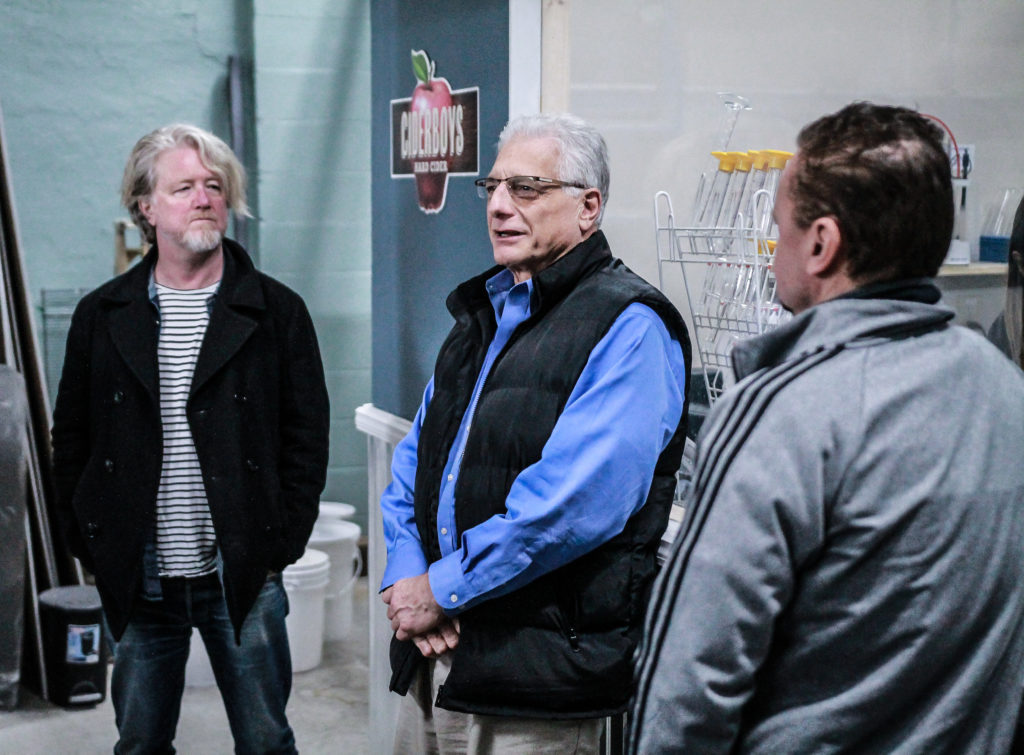
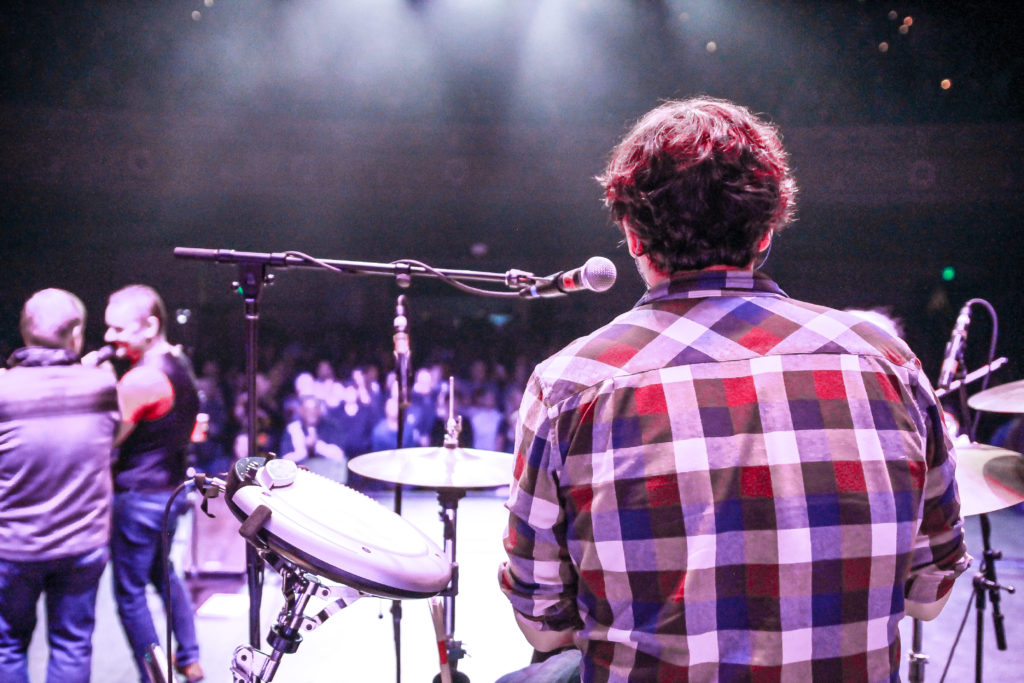
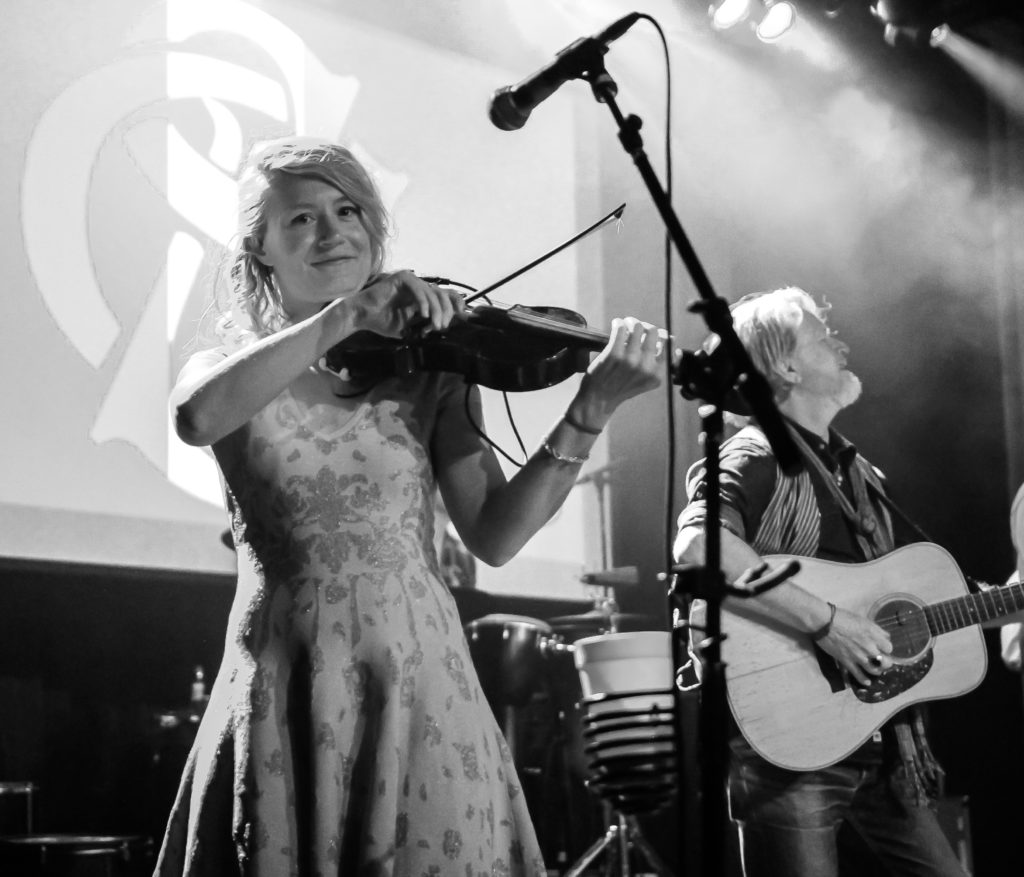
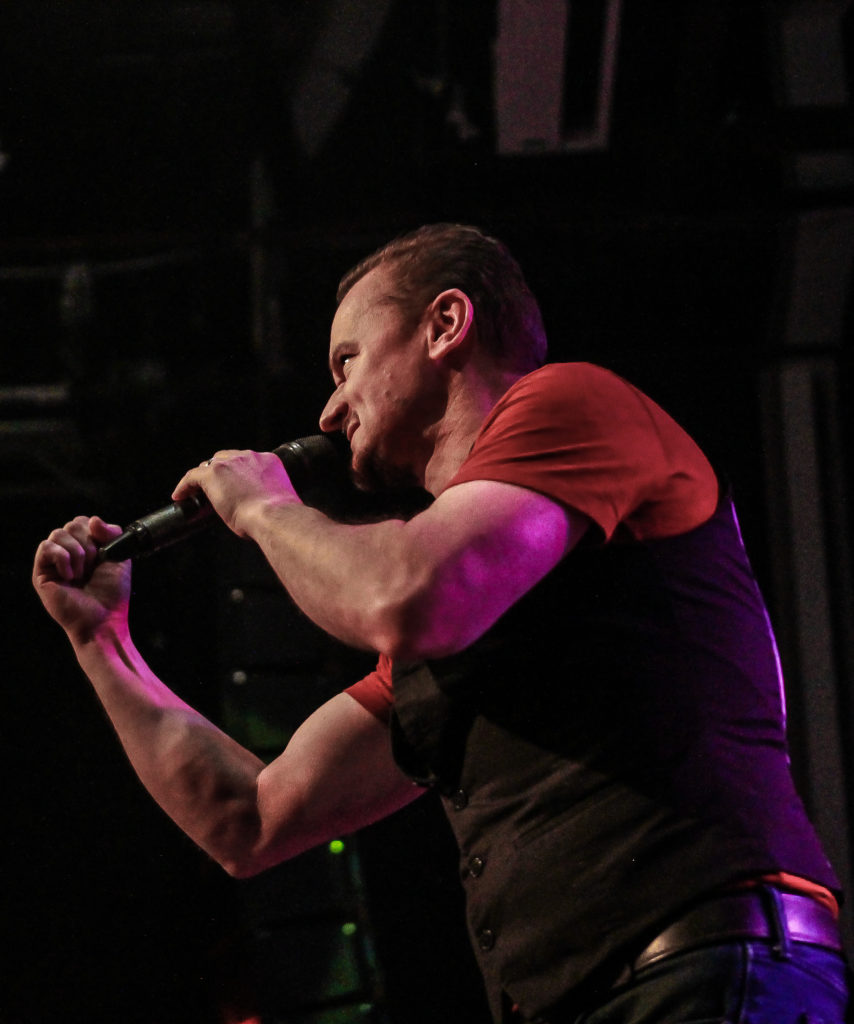

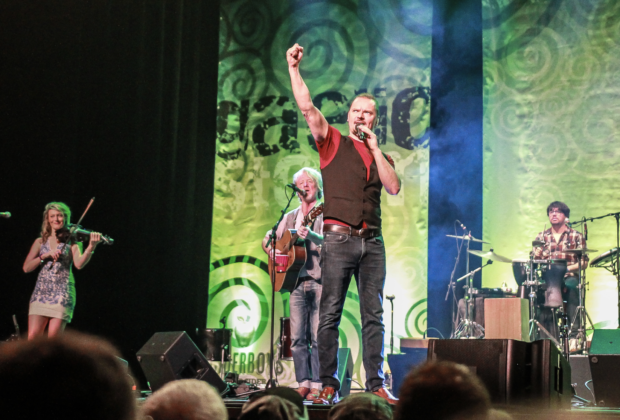

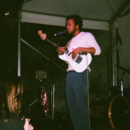
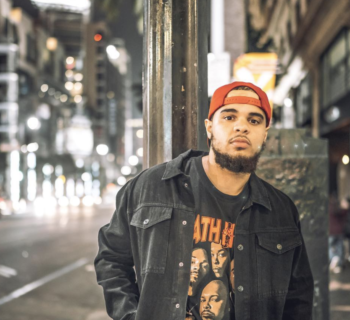
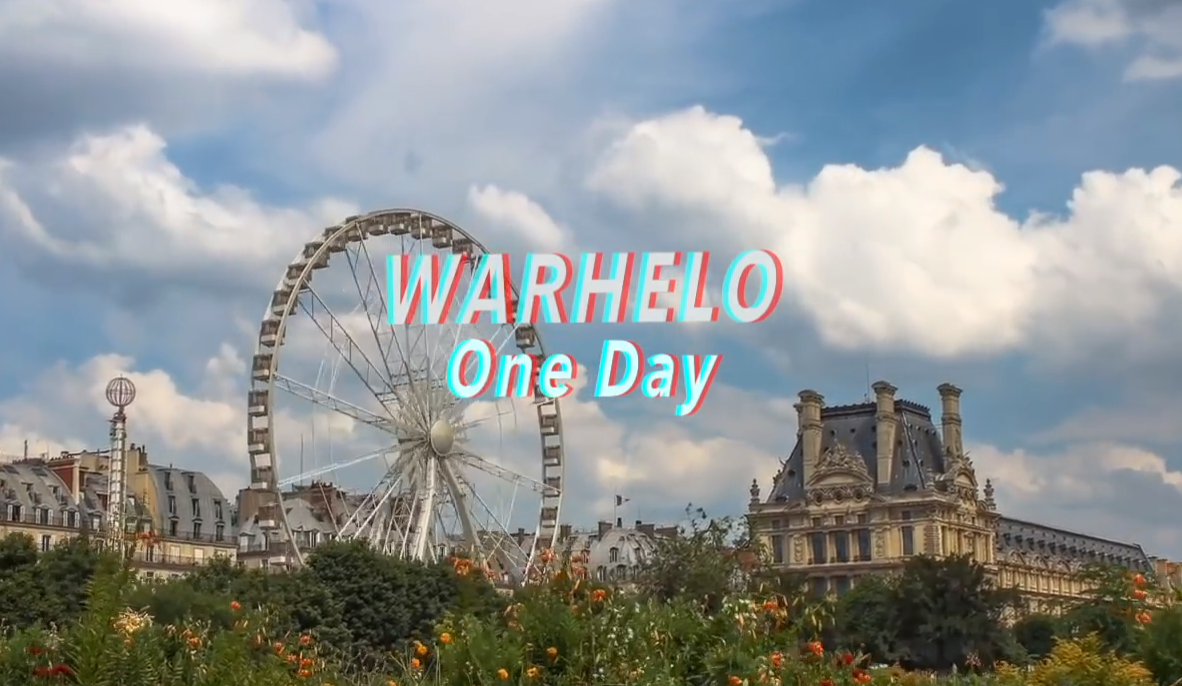
![[Interview + EP Release] Coco: No Rehearsal is the Bouncy Grime EP we need for Summer, and Beyond](http://upcominghiphop.net/wp-content/uploads/2018/05/Screen-Shot-2018-05-25-at-12.45.00-AM-350x320.png)
![[Photos From Last Night] Why Khaliq: Night Of The Mustar Seed](http://upcominghiphop.net/wp-content/uploads/2017/01/notms3-1-130x130.jpg)

